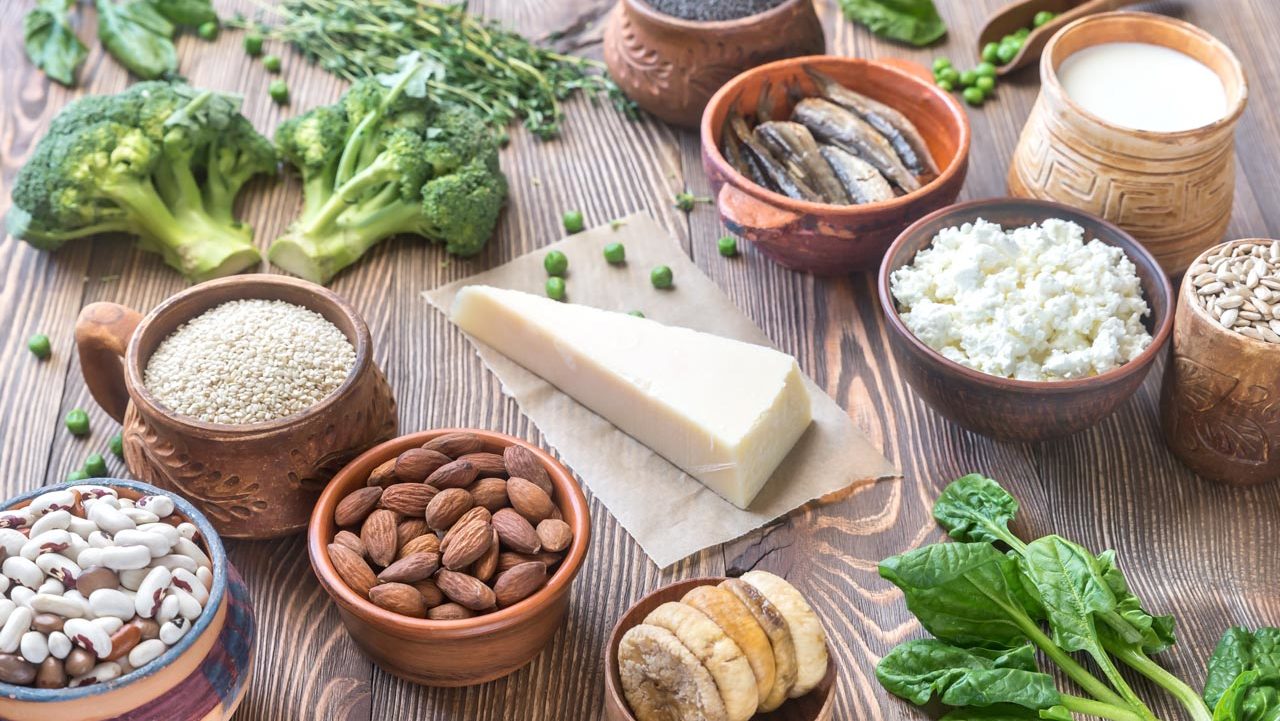Federated Health Charities’ mission is to improve the health and quality of life of Ontarians. We believe education and prevention are key parts of this. Check out our latest Health Hint on maintaining strong bones!
What is Osteoporosis?
Osteoporosis is a condition defined by low bone mass which results in the weakening of your bones. When your bones are weak, you are more likely to experience a fracture or break, especially if you slip and fall. Osteoporosis can result in lower mobility and usually occurs in older adults.
What Nutrients Help Maintain Strong Bones?
The two main nutrients that maintain strong bones are vitamin D and calcium. Since bones are mostly made of calcium phosphate and collagen, getting enough calcium is imperative to keeping your bones healthy. For older adults, getting enough calcium helps to slow bone loss and decreases chances of fracture. Vitamin D helps your body absorb calcium and proteins are important for building and repairing your tissues, which includes your bones.
Most adults need about 1000 mg of calcium a day. If you are pregnant, lactating, or an older adult, you will need more calcium. For people over the age of 50, 1300 mg of calcium is recommended. To take a look at more guidelines, visit this webpage.

What Foods Should I Eat?
Foods that are rich in calcium are also usually also dairy products. If you are lactose intolerant, there are calcium fortified products like soy, almond, and rice beverages, as well as orange juice. Sardines (with the bones) are also a great source of calcium. Vitamin D can be harder to obtain in foods that are not already fortified. Cod liver oil is known for its vitamin D content and many types of milk are also fortified with vitamin D.
Calcium is also present in sesame seeds, swiss chard, spinach, and kale. These sources contain calcium that is not as easily absorbed by your body, so try to rely on a variety of other sources. Foods that are high in easily absorbable calcium include cheese, yoghurt, almonds, and white beans.
Osteoporosis Canada has a calcium calculator you can use to better understand your intake from different foods. After using the calculator, here’s an example of foods you can incorporate into your meals to get the recommended 1000 mg for people 19-49 years of age. For breakfast, try calcium fortified oatmeal with a glass of milk. For snacks throughout the day, eat a couple of oranges and 2-3 handfuls (half a cup) of almonds. You can incorporate a cube of gouda cheese into your lunch or as a snack. For dinner, add some butternut squash to you meal and finish off with a frozen vanilla yoghurt. Using the Osteoporosis Canada calcium calculator, you can mix and match different foods while getting a better understanding of the calcium intake you will receive from them. For more information on foods and their calcium content, take a look at this webpage.

What Exercises Keep Bones Strong?
There are many different kinds of exercise that keep your bones and muscles strong. A combination allows your body to be worked in different ways to improve overall health. Strength training, balance awareness, posture training, and aerobic activity are the four types recommended by Osteoporosis Canada. Take a look at more information on these exercises here. There is a wealth of information on their website and a program called Too Fit to Fracture, which was developed according to WHO guidelines. No matter what our physical fitness level or exercise capabilities, working out is shown to have all around positive effects for your physical and mental health.
We hope you’ve enjoyed our latest Health Hint!
Written by Jennifer Nemcik
NOTE: This article is intended to provide general health tips based on available research. You should consult with a health care professional for specific medical and dietary instructions that are right for you.
References
https://osteoporosis.ca/bone-health-osteoporosis/calcium-and-vitamin-d/
https://osteoporosis.ca/bone-health-osteoporosis/calcium-calculator/#page-1
https://osteoporosis.ca/bone-health-osteoporosis/nutrition/calcium-requirements/










